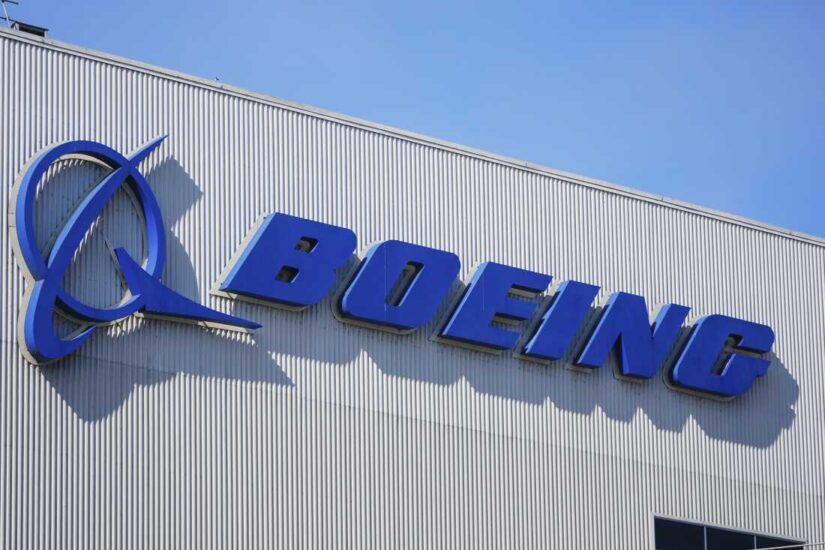
Aviation safety depends on rigorous checks, regulatory compliance, and transparency. But when these systems fail, the results can be alarming. In September 2025, the Federal Aviation Administration (FAA) announced that it had found hundreds of quality-system violations at Boeing’s Renton factory and its supplier Spirit AeroSystems. The FAA uncovers hundreds of such violations, following an investigation triggered by a midair blowout involving an Alaska Airlines 737 MAX in January 2024.
The case has reignited scrutiny of airplane production, safety oversight, and the broader certification process that governs air travel in the United States.
The Alaska Airlines Incident and the Door Plug Failure
In January 2024, an Alaska Airlines jet experienced a door plug panel detachment mid-flight. The terrifying panel blowout created a hole in the fuselage, forcing an emergency landing. Investigators described the event as a potential midair panel blowout that could have ended far worse had the situation escalated.
The National Transportation Safety Board immediately joined the FAA in reviewing the incident, focusing on whether Boeing’s aircraft production practices and safety management systems were compromised.
FAA Investigation Findings
Between September 2023 and February 2024, the FAA uncovered quality-system violations that pointed to serious lapses in production oversight. Key findings included:
- Boeing submitted aircraft for airworthiness certifications even though they were deemed unairworthy.
- Workers reported being pressured to sign off on planes despite noncompliance, raising concerns about falsified paperwork.
- The company failed to follow its own production system compliance protocols, undermining regulatory standards.
The FAA also emphasized concerns with Boeing’s production system, highlighting risks in manufacturing processes that compromised quality control.
As a result, Boeing now faces a proposed $3.1 million fine for the violations.
Boeing’s Response
Boeing acknowledged the Alaska Airlines door plug failure and issued a statement addressing the FAA’s findings. The company promised improvements in safety management, production system compliance, and workforce training. Boeing’s public commitments included:
- Strengthening production system checks and controls.
- Expanding training for quality inspector roles.
- Encouraging employees to speak out against unsafe practices.
While Boeing has pledged corrective action, the FAA has warned that FAA inspections will intensify to ensure that promises translate into real safety improvements.
Broader Concerns With Aircraft Production
The Alaska Airlines case is not isolated. In recent months, Delta Air Lines reported incidents involving missing wing flaps on its 737 aircraft. These failures raised questions about aircraft production speed, production oversight, and whether a production cap might be necessary to restore quality before delivery schedules are prioritized.
The FAA’s findings also exposed weaknesses in the Organization Designation Authorization system, where manufacturers are allowed to handle some aspects of certification internally. Critics argue that this creates conflicts of interest and weakens independent safety oversight.
The Role of Safety Oversight and Certification Process
The FAA’s role is not just issuing fines but also ensuring compliance during the certification process. When a company like Boeing presents unairworthy planes for regulatory approval, it undermines confidence in airworthiness certifications across the entire industry.
Regulators have hinted at possible reforms, including tightening production oversight, expanding FAA inspections, and reassessing how Organization Designation Authorization is implemented.
Deferred Prosecution Agreement and Accountability
Boeing has faced legal scrutiny before, including a deferred prosecution agreement with the U.S. Department of Justice related to earlier 737 MAX crashes. The current findings raise questions about whether such agreements encourage lasting reform or simply delay accountability.
For regulators, passengers, and the public, the case is a reminder that safety oversight and production system compliance cannot be compromised for speed or profit.
Global Impact of Boeing’s Violations
With more than 4,400 Boeing 737s in service worldwide, these violations affect not just the U.S. but also global aviation. Airlines and passengers alike depend on effective quality control and transparent manufacturing processes. A single door plug panel failure or panel blowout incident erodes confidence in the entire fleet.
The National Transportation Safety Board continues to track these issues, while international regulators may increase their own FAA inspections equivalents to ensure that Boeing meets the highest standards of safety.
Conclusion
The FAA’s discovery of hundreds of quality-system violations at Boeing underscores the urgent need for stricter production oversight and stronger accountability. From midair blowouts to concerns about falsified paperwork, the issues identified suggest systemic problems in aircraft production that cannot be ignored.
While Boeing has promised reforms, only time will tell whether its efforts in safety management and production system compliance will prevent future disasters. For now, the case stands as a sobering reminder that public safety must always take precedence over corporate schedules and profits.
About Ted Law
At Ted Law Firm, has earned trust by standing with individuals and families during times of crisis. Through dedication and a commitment to justice, Ted Law continues to provide support and advocacy for those seeking accountability.We serve families across Aiken, Anderson, Charleston, Columbia, Greenville, Myrtle Beach, North Augusta and Orangeburg. By focusing on fairness and integrity, the firm remains a reliable ally for those navigating complex legal challenges.Contact us today for a free consultation
